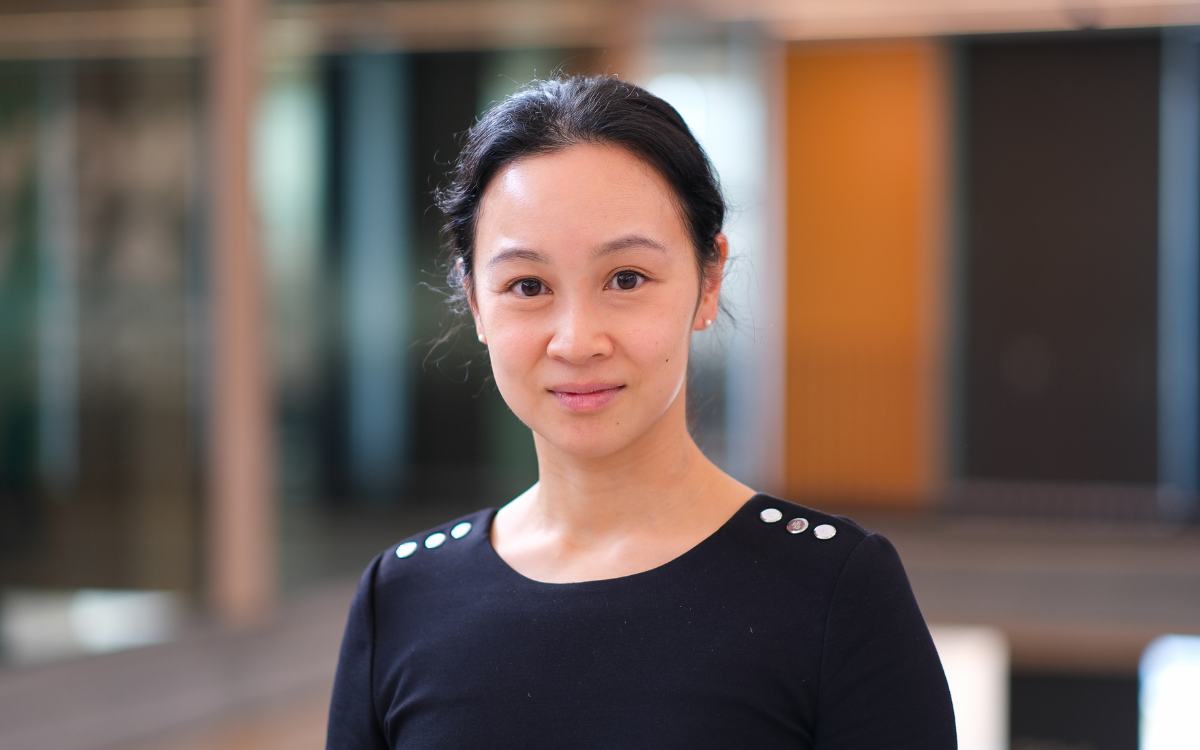Harnessing AI to advance cancer research

A new project funded by an AIRC Start-up grant aims to overcome current challenges in multi-omics AI models, paving the way for innovations in precision oncology
AI models are revolutionising cancer research: they can detect patterns indicative of cancer, identify genetic mutations, or help interpret images during diagnosis. But there are still serious limitations to what current AI models can do. In a project funded by an AIRC Start-up grant, Charlotte Ng, Associate Professor of Genetics at Humanitas University, and her team will explore innovative approaches to overcoming current challenges in applying AI models to multi-omics data, an endeavor that could pave the way for advancements in personalised oncology
“We want to make better use of artificial intelligence in cancer research,” says Charlotte Ng, who heads the Computational Biology Lab at Humanitas Research Hospital. Multi-omics data, meaning multiple types of high-throughput molecular data, such as genomic and transcriptomic data, can be jointly analyzed. “In cancer research, and especially in the case of precision oncology, current models often limit us to using only one type of data. What we want to do is to develop an AI framework that allows us to access the vast potential of multi-omics data.”
Complementary knowledge
What are the challenges that Charlotte Ng’s project aims to address? “One is that most AI models consider multi-omics data as independent. But from a biological perspective, we know that these data types are not.” DNA alterations, for instance, will have an impact on RNA transcription, and that in turn will have an effect at the protein level. “So, we want to leverage the interdependence of the data types to gain deeper biological insights,” Ng explains.
Moreover, most AI systems in use today are set up to work with complete data sets, consisting of multiple data types. “In these kinds of models, samples that have missing data are excluded.” But a variety of factors – from cost to tissue size – often limit the ability to generate multiple types of molecular data from the same samples. A framework that takes this scenario into account would make it possible to make use of these incomplete but still precious datasets, while at the same time avoiding the risk of bias.
The project will develop deep learning models that employ neural networks to jointly represent the different types of data, rather than representing different modalities separately. “We want to use this complementary knowledge to be able to identify the features that can help understand cancer prognosis, and might help patient stratification.”
To develop this framework, the project will first apply it to hepatocellular carcinoma, a major type of liver cancer that is increasing in incidence in Europe and other Western countries, but for which treatment options are limited. “We will develop a model to identify prognostic biomarkers for hepatocellular carcinoma,” explains Charlotte Ng. Ng has been working on this type of liver cancer for several years, since her time as a research associate under Professor Luigi Maria Terracciano at the University Hospital in Basel, Switzerland. There, her research developed in cancer bioinformatics and computational biology. “I have always been very interested in these research fields, since focusing on bioinformatics in my undergraduate degree at University of New South Wales, Australia,” tells Charlotte Ng. Since then, the researcher has journeyed from Cambridge, UK – for a PhD in oncology – to the Memorial Sloan Kettering Cancer Center in New York and to other top research institutes in Basel and Bern, before joining Humanitas in 2023.
Making AI more useful for clinicians and patients
“While I’m a classically trained bioinformatician, I have a long experience working in wet labs, side by side with biologists, and to this day I have very close collaborations with them. Oftentimes, bioinformaticians are not aware enough of the biological interpretations, or conversely, many biologists are not exposed to bioinformatics.” This collaboration is critical, Ng emphasizes, because the attention to bioinformatics is growing. “We need to learn to speak the same language, learn about the terminology and how things are done.”
At Humanitas, Ng fosters this collaborative mindset by organizing internal monthly seminars for bioinformaticians. “Most of them work in biology labs, and sometimes their PIs are clinicians or biologists. I try to contribute, providing a different perspective to the more technical aspects of their projects. We have someone internally present to the group every month, so we get the opportunity to hear what everybody else is doing,” explains Charlotte Ng. She also teaches bioinformatics at various levels, from medical students to PhD students.
Ng also teaches bioinformatics at various levels, from medical students to doctoral candidates. In this context, the partnership with Bocconi University has led to the creation of the Master’s Degree Program in Data Analytics and Artificial Intelligence in Health Sciences (DAIHS). This is a two-year program aimed at training specialists capable of implementing AI and Machine Learning methods in the healthcare sector.
Developing new frameworks for AI models means making them more useful for clinicians and patients, starting with making better use of the wealth of clinical data generated by research hospitals, comments Ng. “I would like to see AI frameworks and data science become part of clinical management, so as to help clinicians make clinical decisions, to identify new drugs, or to find the best treatment options for individual patients.”